Literature often takes up timeless philosophical questions. This week, we take up one that has interested writers for centuries: the origins of evil.
What makes a villain a villain?
Some of the other timeless philosophical questions — "What's the meaning of life?" comes to mind — seem to loom in the abstract, waiting for us to toss them around after midnight in college dorm rooms, but the question of evil is right there, alas, in our daily lives. You don't have to be a great thinker to wonder why that guy in the next cubicle is such a jerk, why the mean girls are mean, or what gave rise to all those trolls on the Internet.
In fact, there's a colloquial version of this philosophical question, and it goes like this: "Why you gotta be like that?"
I'm sure that psychologists could provide some insights here, but I want to focus on something that has emerged in my world — that is, the world of literature, where some of our greatest thinkers have taken up this question.
Last week, I attended a fascinating book talk led by my fellow Substacker, Colin Gorrie of Dead Language Society. Colin often writes about the English language (one of my favorite topics), but he also is an expert on Beowulf, that epic poem you may remember from high school or college. His expertise was certainly obvious in this talk, which really opened up my understanding of the poem. (Thanks, Colin!)
My favorite insight from the talk had to do with this question of evil. If you have read the poem or even just parts of it, you surely remember Grendel, the man/monster who conducts raids on King Hrothgar's mead hall, killing thanes for months before a great warrior comes to the rescue. (Yes, that would be Beowulf.)
I don't recall, from my previous encounter with the poem decades ago, thinking about Grendel's motivation. He's just a monster, right? (Actually, it's not clear if he's superhuman, but we won't explore that question right now.)
During our talk, Colin offered a perspective that I found fascinating, I suppose because the origin of evil has long interested me. He suggested that Grendel, as an outsider, hated to see the thanes experiencing joy in their mead hall. Here are some pertinent lines:
"A bold demon who waited in darkness
wretchedly suffered all the while,
for every day he heard the joyful din
loud in the hall, with the harp’s sound,
the clear song of the scop."
This reading of the poem took me back to my favorite villain in all of literature: Iago from Shakespeare's Othello. If you know this brilliant and distinctly heartbreaking play, you recall that Iago manipulates Othello into committing one of the foulest and most self-destructive crimes that anyone can commit. I have read and taught this play several times, and it raises exactly the question I have raised here: why does Iago do it? Why, in the name of heaven, does he do something so cruel? There's a very brief hint that Iago is angry about a rumor he has heard about Othello, but this single mention hardly amounts to anything substantial.
Rather, it seems that Iago is determined to bring down a man — a friend — in the peak of his joy. Othello has just married Desdemona, and the two are a picture of bliss — the kind of ecstasy that makes some of us share their joy and others want to destroy it.
It's Grendel all over again. To someone who feels denied, such bliss is a kind of irritant, perhaps a form of torture, a reminder of what the outsider does not have and maybe never will.
If you need another example, just consider Montresor from Edgar Allan Poe's story "The Cask of Amontillado." Early in the story, Montresor, who narrates the story, says to an acquaintance named Fortunato:
You are rich, respected, admired, beloved; you are happy, as once I was. You are a man to be missed. For me it is no matter.
The brief clause "as I once was" is subtle, but revealing: Montresor seems to be envious of what Fortunato has — something he himself has lost. The next sentence, by the way, is a little piece of dark humor. Yes, Fortunato is going to be missed if Montresor has anything to do with it. (Now, go read Poe's story if you don't know it. It's one of his best.)
Montresor, Grendel, and Iago all seem to be suffering from the same destructive drive — to destroy the joy that they cannot feel, along with the people who can feel it.
In this disturbing drama, however, lies a possible antidote.
In the U2 song "Love and Peace or Else," my fellow peace lover Bono sings, "We're going to break the monster's back." I've never written a hit rock song, so forgive me, Bono, but I think that line should be "We're going to heal the monster's back."
I'm not one to excuse villains, but I'm certain that we sometimes play a role in creating them. In an article on school shootings, a Clemson University psychologist wrote:
“We found that the majority of school shooters are male (95%) and white (61%)–yet many of these individuals feel marginalized. Indeed, almost half of those who perpetrate K-12 shootings report a history of rejection, with many experiencing bullying. One 16-year-old shooter wrote, “I feel rejected, rejected, not so much alone, but rejected. I feel this way because the day-to-day treatment I get usually it’s positive but the negative is like a cut, it doesn’t go away really fast.” . . . A 14-year-old shooter stated in court, “I felt like I wasn’t wanted by anyone, especially my mom.” These individuals felt rejected and insignificant.”
Often, it seems, we make villains when we make outsiders.
What makes a villain a villain? Let me ask a different question. What might save a villain from becoming a villain?
Replacing exclusion with inclusion and pain with joy — in short, healing the monsters' backs — would seem to be a start.
I'm willing to try. What do you say?





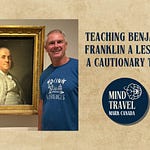
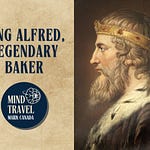

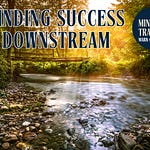

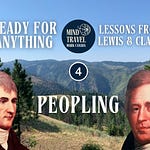
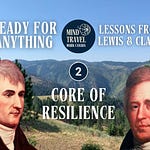
Share this post